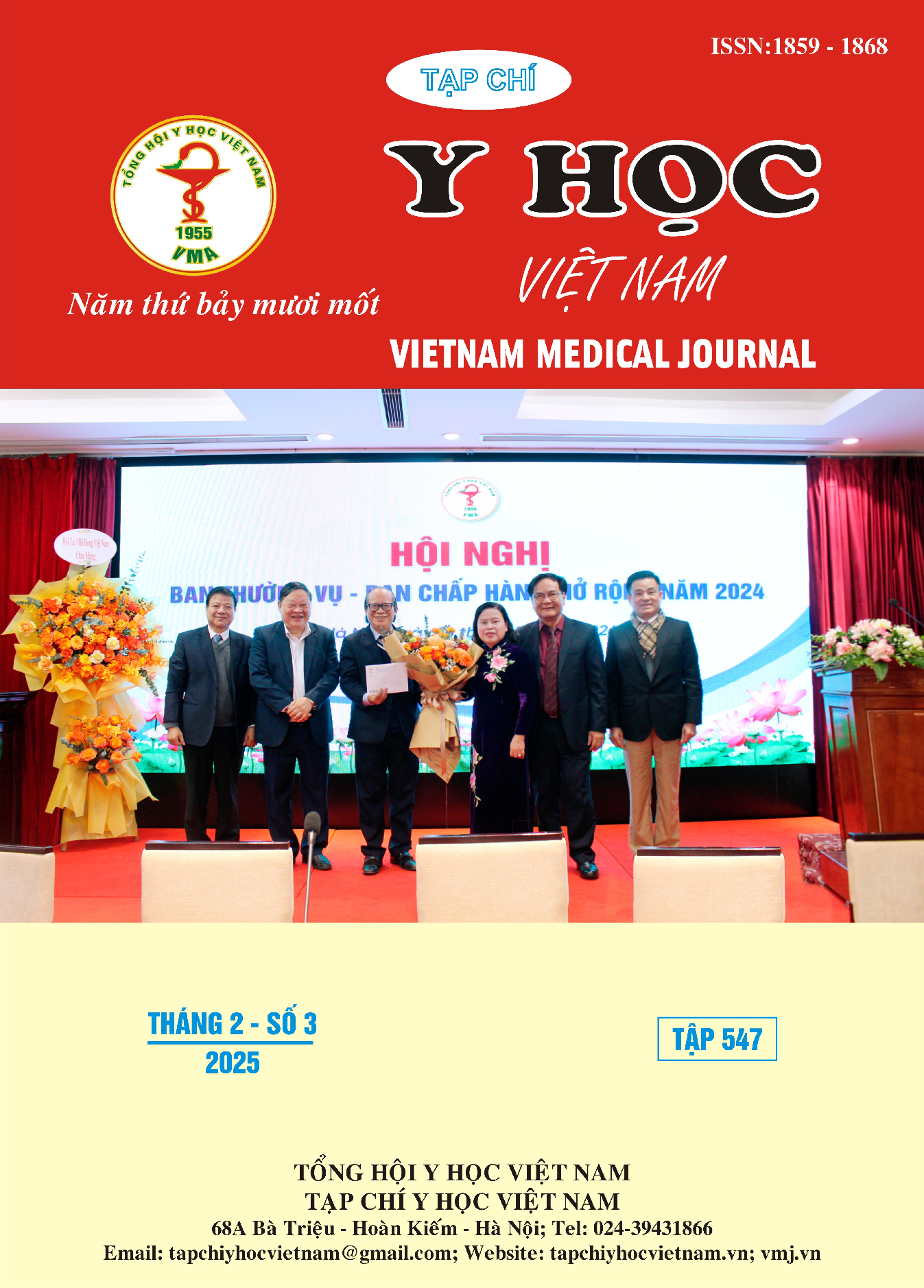ASSESSMENT OF DISEASE CONTROL STATUS IN PATIENTS WITH ATOPIC DERMATITIS AT THE OUTPATIENT CLINIC OF HO CHI MINH CITY DERMATOLOGY HOSPITAL
Main Article Content
Abstract
Objective: To evaluate the disease control status of patients with atopic dermatitis (AD) and to identify the association between disease control status and certain epidemiological and clinical characteristics of the patients. Subjects and Methods: This cross-sectional descriptive study assessed disease control using the Atopic Dermatitis Control Tool (ADCT) in 130 AD patients at the outpatient clinic of Ho Chi Minh City Dermatology Hospital from March 2024 to August 2024. Results: The median ADCT score was 11 (range 8–14). The proportion of patients with uncontrolled AD according to the ADCT was 80.8%, which was higher than the proportion of patients' self-assessed uncontrolled disease (65.4%), with this difference being statistically significant (p < 0.001). The ADCT score showed a strong positive correlation with the SCORAD and DLQI scores, with correlation coefficients of 0.796 and 0.899, respectively. There was an association between disease control status and disease severity, moisturizing habits, and patient satisfaction with treatment. Conclusion: Disease control status is associated with disease severity and treatment status in patients with atopic dermatitis. The ADCT is a reliable and valuable tool that helps both patients and healthcare providers accurately and promptly assess disease control status in clinical practice.
Article Details
Keywords
disease control, atopic dermatitis
References
2. Langan SM, Irvine AD, Weidinger S. Atopic dermatitis. The Lancet. 2020;396(10247):345-360.
3. Jirakova A, Vojackova N, Gopfertova D, Hercogova J. A comparative study of the impairment of quality of life in Czech children with atopic dermatitis of different age groups and their families. Int J Dermatol. Jun 2012;51(6):688-92.
4. Simpson EL, Guttman-Yassky E, Margolis DJ, et al. Association of Inadequately Controlled Disease and Disease Severity With Patient-Reported Disease Burden in Adults With Atopic Dermatitis. JAMA Dermatol. Aug 1 2018;154(8):903-912.
5. Thomas KS, Apfelbacher CA, Chalmers JR, et al. Recommended core outcome instruments for health‐related quality of life, long‐term control and itch intensity in atopic eczema trials: results of the HOME VII consensus meeting*. British Journal of Dermatology. 2021;185(1):139-146.
6. Mandelin JM, Ekman A, Ruohonen ST, Korhonen L. Atopic Dermatitis Patients' Preference on Patient Self-administered Tools Used in Clinical Practice. Acta Derm Venereol. Apr 6 2023;103:adv5261.
7. Staumont-Sallé D, Taieb C, Merhand S, Shourick J. The Atopic Dermatitis Control Tool: A High-Performance Tool for Optimal Support. Acta Dermato-Venereologica. 2021;101(12): adv00618.
8. Pariser DM, Simpson EL, Gadkari A, et al. Evaluating patient-perceived control of atopic dermatitis: design, validation, and scoring of the Atopic Dermatitis Control Tool (ADCT). Current Medical Research and Opinion. 2020;36(3):367-376.
9. Eichenfield LF, Tom WL, Berger TG, et al. Guidelines of care for the management of atopic dermatitis: section 2. Management and treatment of atopic dermatitis with topical therapies. J Am Acad Dermatol. Jul 2014;71(1):116-32.


